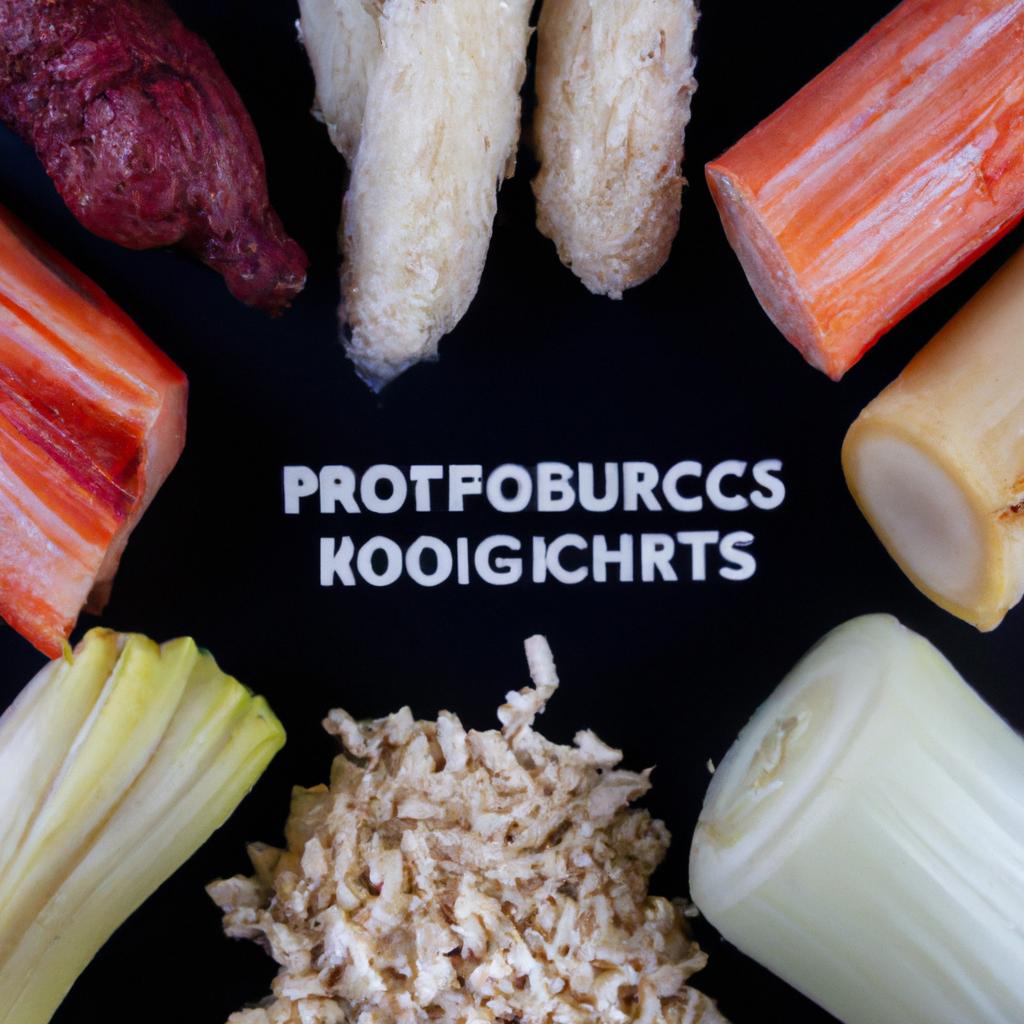The Impact of Prebiotic Foods on Gut Microbiome Diversity: How Dietary Choices Influence Athletic Performance and Recovery
The Impact of Prebiotic Foods on Gut Microbiome Diversity: How Dietary Choices Influence Athletic Performance and Recovery
In recent years, the connection between diet and athletic performance has gained immense attention, particularly regarding the gut microbiome. The gut microbiome, which consists of trillions of microorganisms, plays a crucial role in various bodily functions, including digestion, immune response, and even mood regulation. However, one often overlooked aspect is how prebiotic foods can enhance gut microbiome diversity and, consequently, improve athletic performance and recovery. In this blog post, we will explore the importance of prebiotic foods, provide nutrition tips, offer exercise advice, and discuss the health benefits of maintaining a diverse gut microbiome.
Understanding Prebiotic Foods and Their Role
What Are Prebiotic Foods?
Prebiotic foods are non-digestible dietary fibers that stimulate the growth and activity of beneficial bacteria in the gut. These fibers act as food for probiotics, the good bacteria that help maintain a healthy gut environment. Common sources of prebiotics include:
– **Garlic**: Known for its strong flavor, garlic is also rich in inulin, a type of prebiotic fiber.
– **Onions**: Similar to garlic, onions contain fructooligosaccharides (FOS), which promote beneficial gut bacteria.
– **Bananas**: Particularly when they are slightly green, bananas provide a source of resistant starch, which has prebiotic properties.
How Do Prebiotics Affect Gut Microbiome Diversity?
Gut microbiome diversity is vital for optimal health. A diverse microbiome can help fend off pathogens, aid in digestion, and reduce inflammation. Prebiotic foods contribute to this diversity by promoting the growth of beneficial bacteria, which can outcompete harmful microorganisms. Moreover, a diverse gut microbiome is associated with better metabolic health, which is crucial for athletes who require efficient energy production and recovery.
Nutrition Tips for Athletes
Incorporating Prebiotic Foods into Your Diet
To reap the benefits of prebiotic foods, athletes should aim to include a variety of these foods in their daily nutrition. Here are some practical tips:
1. **Start with Breakfast**: Incorporate fruits like bananas or berries into your morning smoothie. Add a dollop of yogurt, which contains probiotics, to maximize gut health benefits.
2. **Snack Smart**: Opt for snacks that contain prebiotic fibers, such as raw veggies with hummus or whole grain toast topped with avocado.
3. **Experiment with Recipes**: Include garlic, onions, and leeks in your cooking. These ingredients can easily enhance the flavor of meals while providing prebiotic benefits.
Hydration Matters
In addition to prebiotic foods, hydration plays a critical role in maintaining a healthy gut microbiome. Therefore, athletes should ensure they are drinking enough water, especially when consuming high-fiber foods. Proper hydration helps the body digest fiber efficiently, allowing prebiotics to work their magic.
Exercise Advice and Gut Health
The Connection Between Exercise and Gut Microbiome
Interestingly, exercise itself can positively influence gut microbiome diversity. Regular physical activity has been linked to increased levels of beneficial bacteria. Consequently, athletes who engage in consistent training not only benefit from improved fitness but also from a more diverse gut microbiome.
Balancing Intensity and Recovery
On the other hand, intense training sessions can sometimes lead to gastrointestinal distress, particularly if athletes do not pay attention to their dietary choices. It is essential to balance workout intensity with proper nutrition. Therefore, including prebiotic foods in your post-workout meals can help support recovery by promoting gut health.
Health Benefits of a Diverse Gut Microbiome
Enhanced Athletic Performance
A diverse gut microbiome can lead to better nutrient absorption and improved energy production. Consequently, athletes may experience enhanced performance, stamina, and endurance. Furthermore, a healthy gut can aid in reducing inflammation, which is crucial for recovery after strenuous workouts.
Improved Immune Function
Athletes often push their bodies to the limit, making them more susceptible to illness. A robust gut microbiome plays a significant role in immune function. Therefore, maintaining a diverse gut can help athletes stay healthy and reduce the risk of infection.
Better Mental Health and Focus
Emerging research suggests that the gut-brain connection is powerful. A diverse gut microbiome may improve mood and cognitive function, helping athletes stay focused during training and competition. Therefore, by prioritizing gut health through dietary choices, athletes can support both their physical and mental performance.
Conclusion
In summary, the impact of prebiotic foods on gut microbiome diversity cannot be overstated, especially for athletes. By making informed dietary choices that include a variety of prebiotic foods, athletes can enhance their gut health, improve performance, and speed up recovery. Furthermore, the benefits extend beyond physical performance to include mental health and immune function. Therefore, if you’re an athlete looking to optimize your training and recovery, consider incorporating prebiotic foods into your diet as a foundational strategy for success. Your gut—and your performance—will thank you!
FAQ
What are prebiotic foods and how do they benefit athletes?
Prebiotic foods are non-digestible dietary fibers that promote the growth and activity of beneficial gut bacteria. For athletes, incorporating prebiotic foods like garlic, onions, and bananas can enhance gut microbiome diversity, which is crucial for optimal digestion, immune function, and inflammation reduction. This improved gut health can lead to better nutrient absorption and enhanced athletic performance.
How can athletes incorporate prebiotic foods into their diet?
Athletes can easily include prebiotic foods in their diet by starting with breakfast; for instance, adding bananas or berries to smoothies and yogurt. Snacking on raw veggies with hummus or whole grain toast with avocado is another great option. Additionally, experimenting with recipes that feature garlic, onions, and leeks can provide prebiotic benefits while enhancing meal flavors.
What is the connection between exercise and gut microbiome diversity?
Regular exercise has been shown to positively influence gut microbiome diversity by increasing beneficial bacteria levels. While intense training can sometimes lead to gastrointestinal distress, balancing workout intensity with proper nutrition—such as including prebiotic foods in post-workout meals—can support recovery and promote a healthier gut microbiome, ultimately benefiting athletic performance.















Post Comment